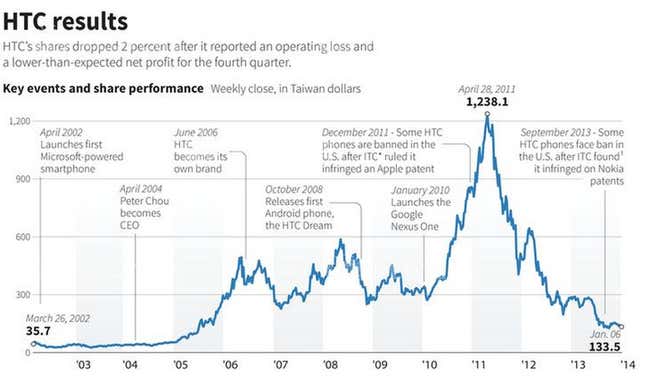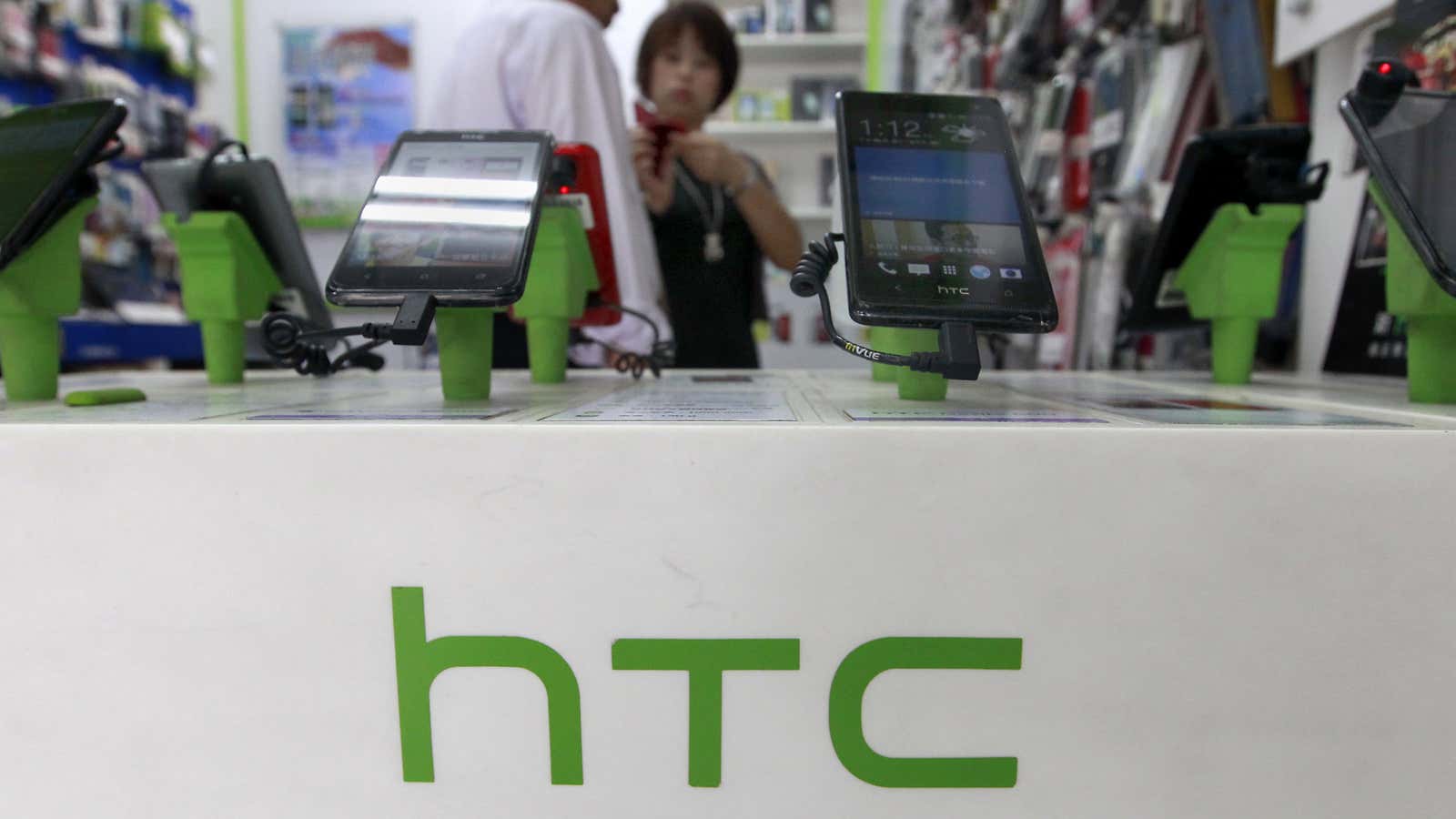There is no riskier move in the smartphone game than to make a run at the top of the market, where Apple and Samsung are the kings. Taiwanese handset maker HTC learned that lesson the hard way with its HTC One trophy phone, which it introduced last spring with a flashy launch event and generally strong reviews—only to be hamstrung by supply-chain difficulties and the general indifference of consumers.
HTC has been flailing ever since, posting 27 consecutive months of falling revenues and shrinking market share. It announced a high-profile retreat today (Feb. 10) with the promise that it would return to its roots as a mass-market manufacturer of inexpensive smartphones, where the profit margins are thin and the competition is fierce, but the potential pool of customers is in the billions.
“The problem with us last year was we only concentrated on our flagship. We missed a huge chunk of the mid-tier market,” co-founder and chairwoman Cher Wang, who returned to a more active role in October, said to Reuters. That’s quite a contrast from 2012, when CEO Peter Chou disdained the lower end of the market. ”We won’t have good products at that price level [under 1,000 yuan ($165)],” he told the Wall Street Journal (paywall). “We insist on using better materials to make better products that offer premium experience. Many consumers like that.”
Not enough of them, it seems. The company reported its second straight operating loss in the fourth quarter, posting a narrow net profit of 300 million Taiwanese dollars (US$10 million) due to an asset sale. In the current quarter, HTC expects revenues to fall to T$34-36 billion, from T$42.8 billion Taiwan dollars a year earlier.
However, while the company was pursuing its dreams of challenging the iPhone and Samsung Galaxy, the lower end of the smartphone market has changed irrevocably. Mainland Chinese companies like Lenovo and Huawei have become huge players, and nimble upstarts like Xiaomi are carving out their own niches. So even as HTC tries to return to its roots, it is likely to find that the territory it once profitably occupied is suddenly a lot more crowded.

